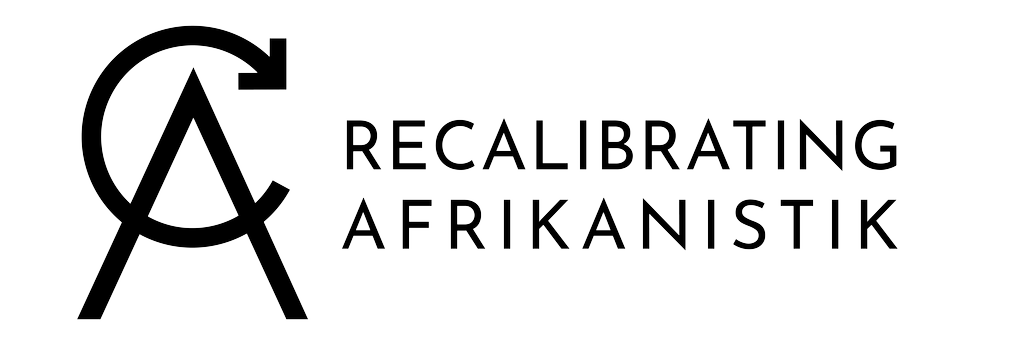
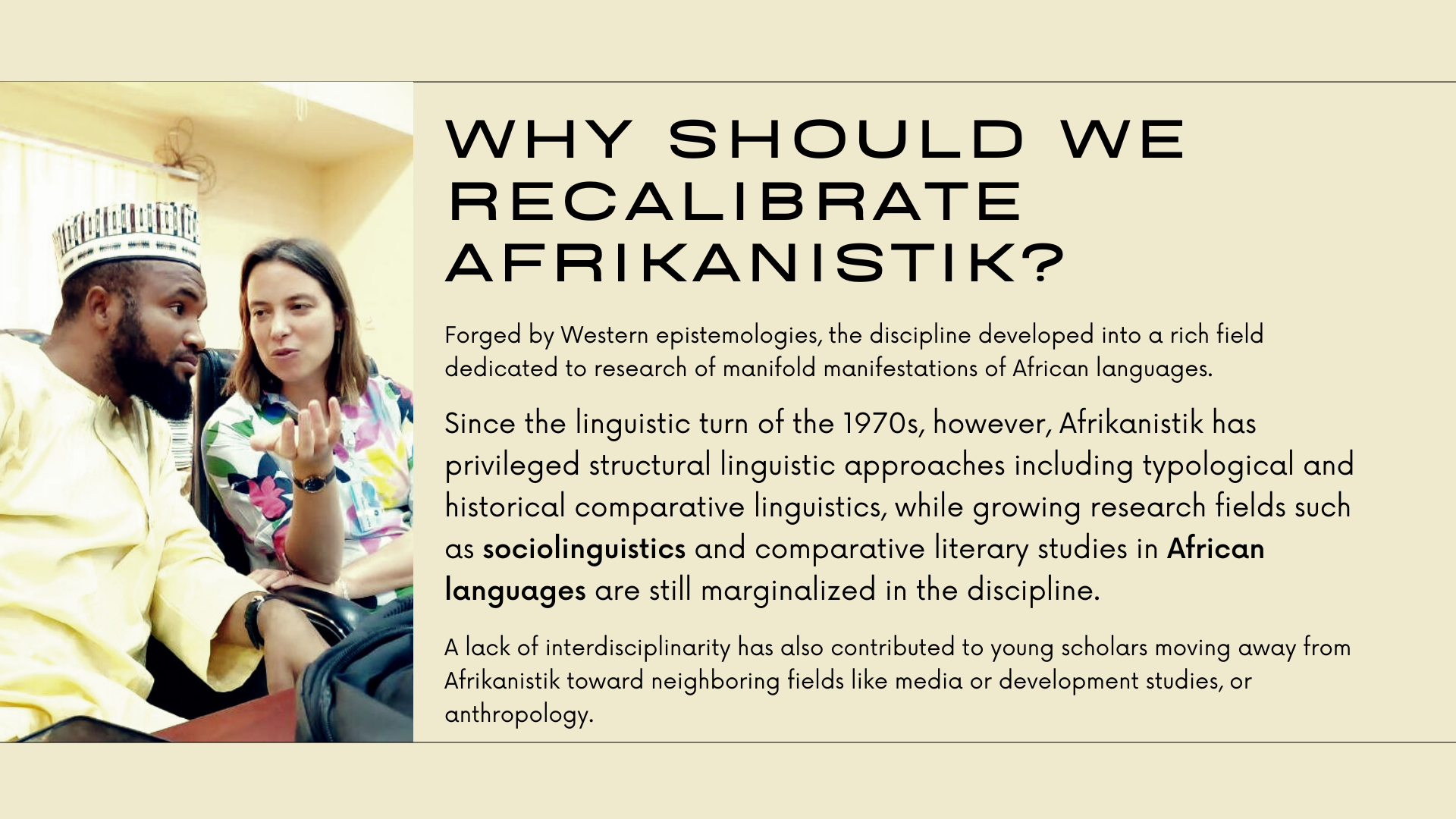
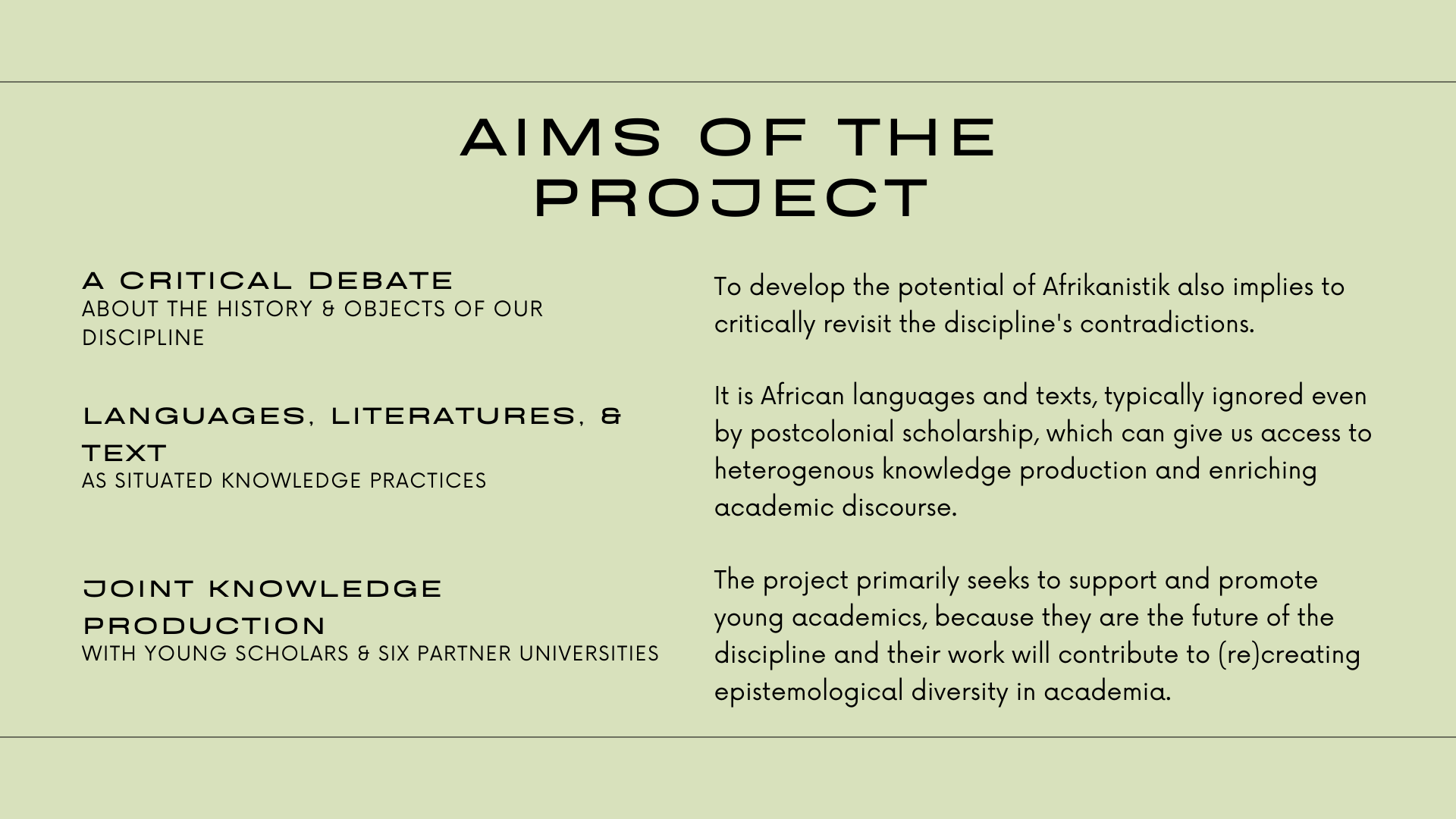
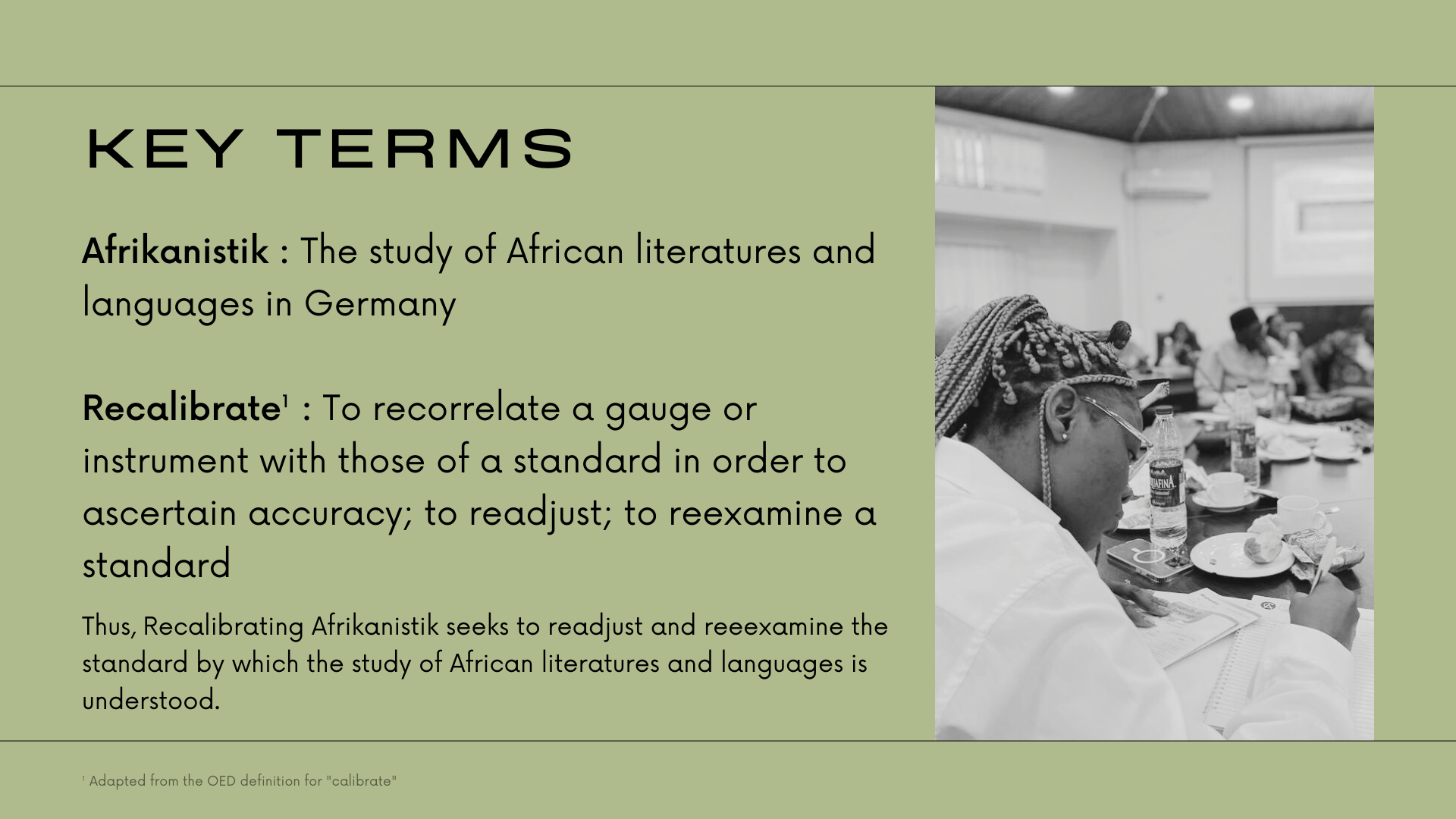
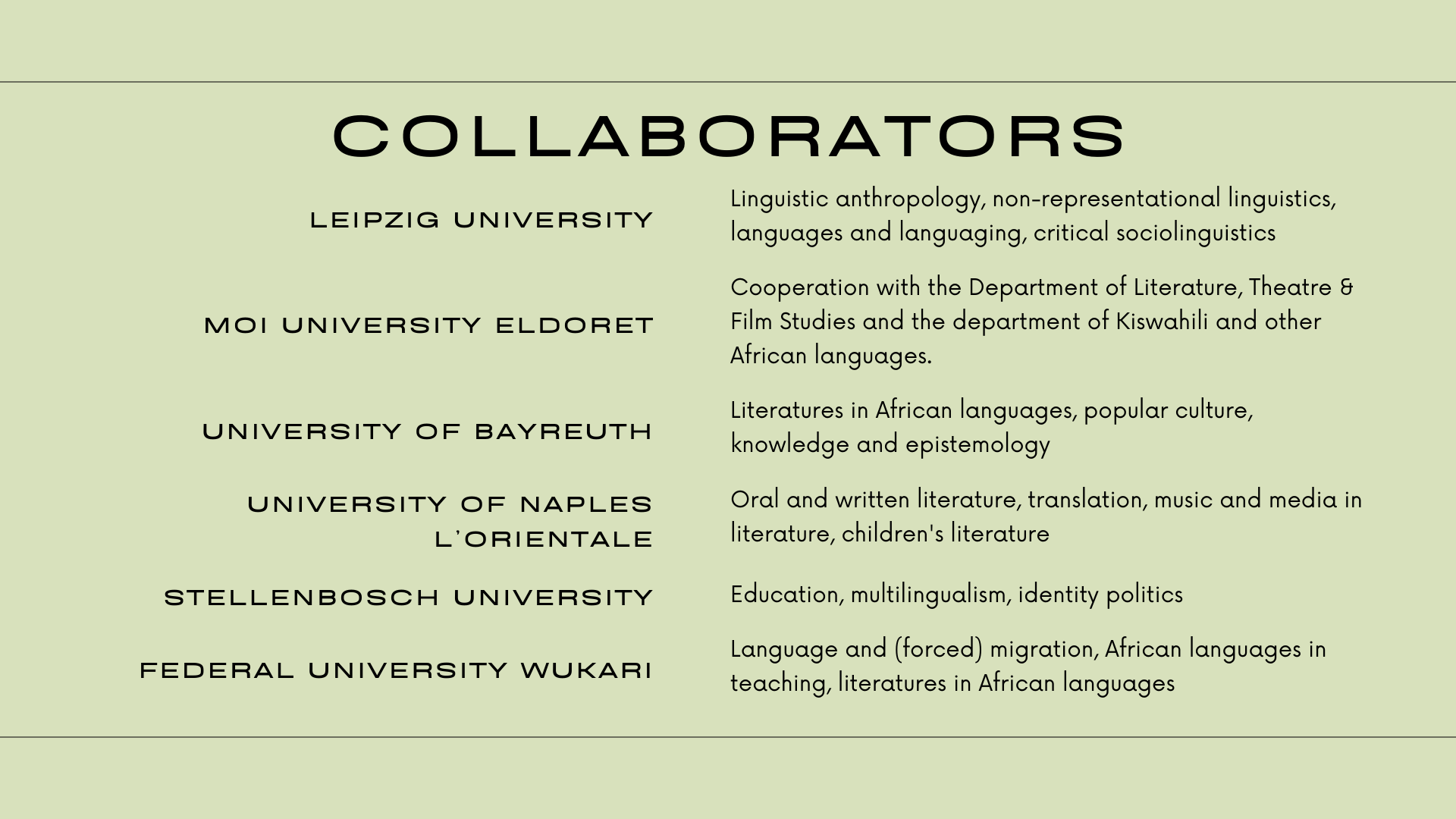
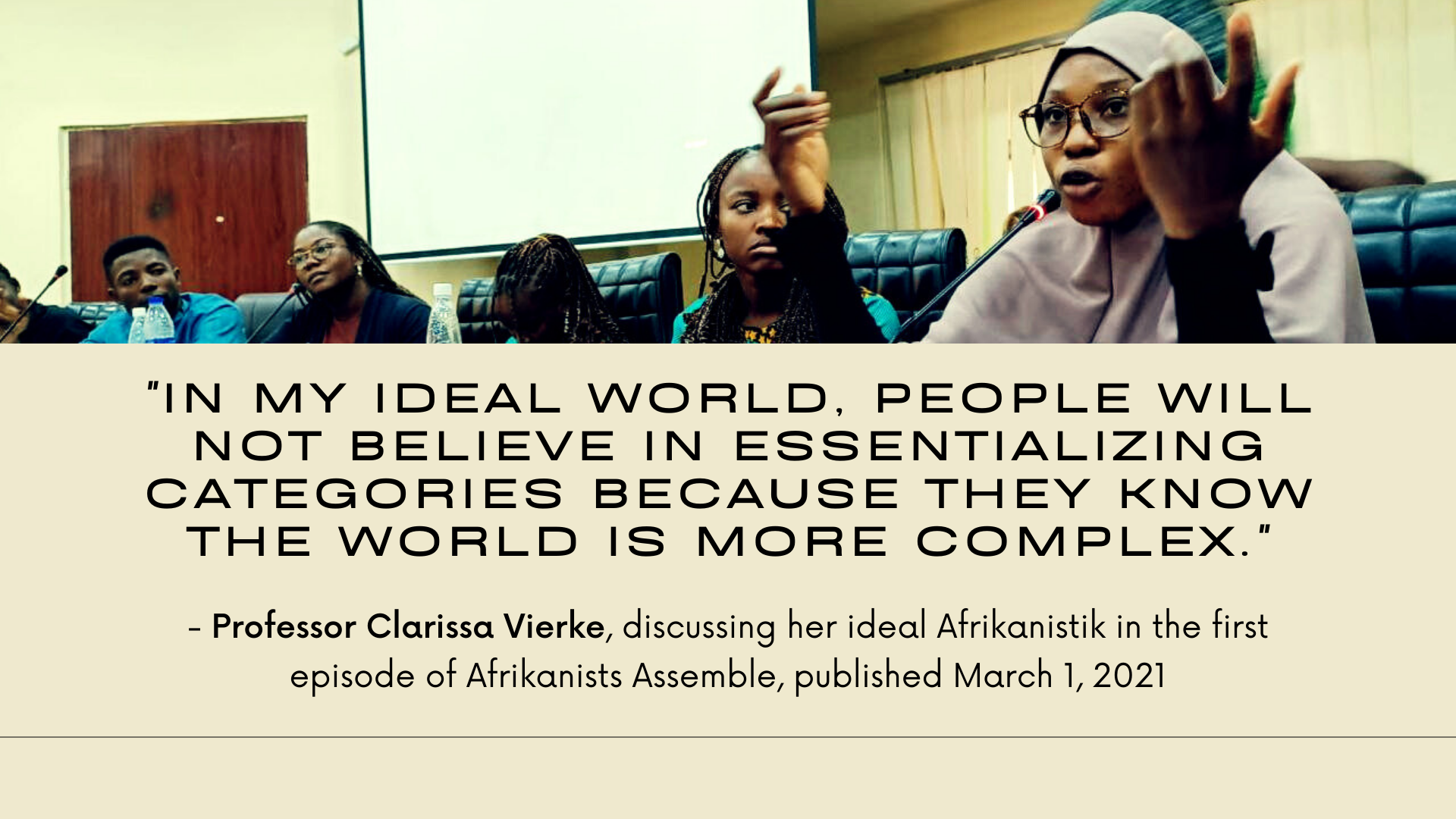
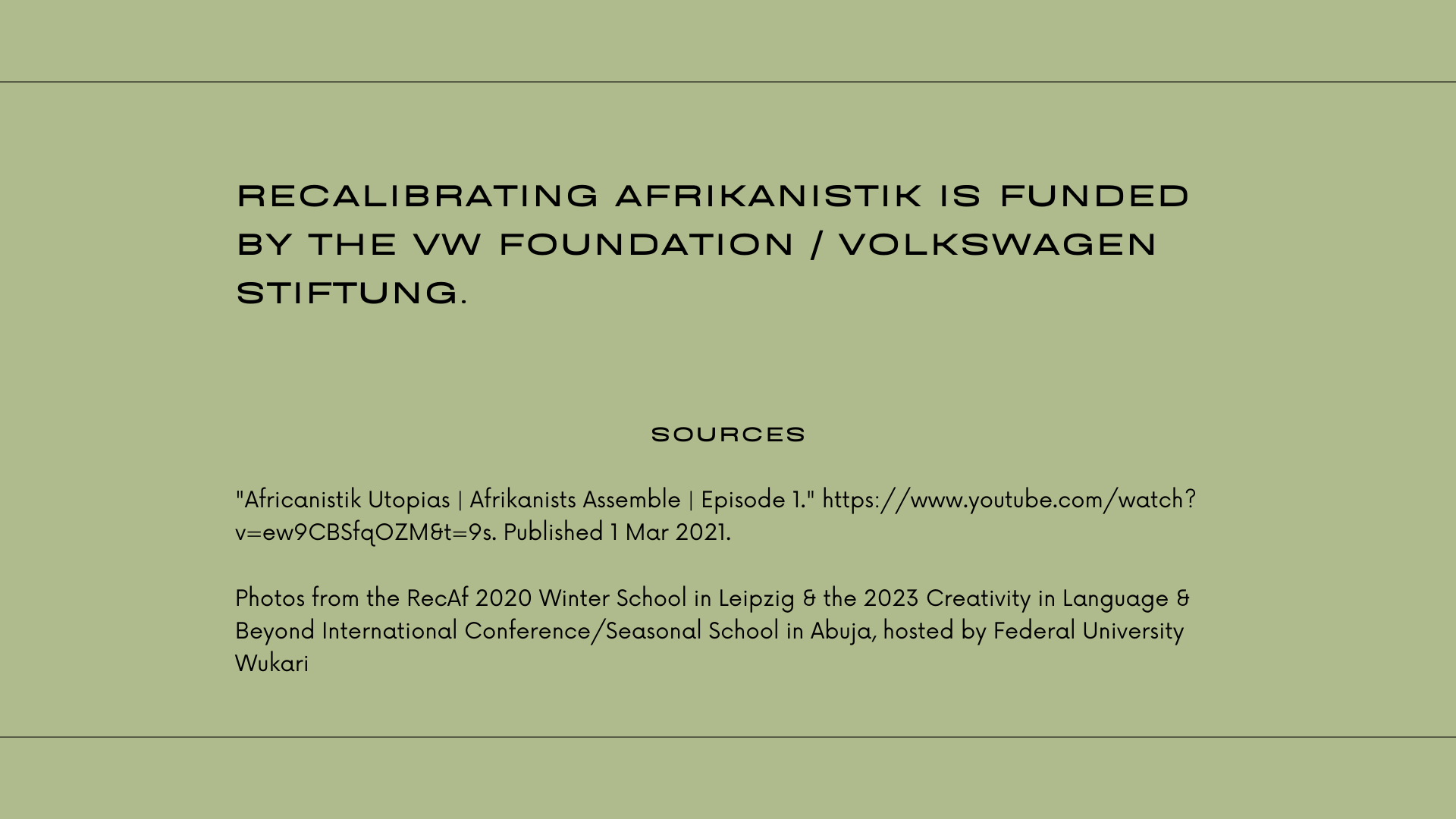
Project Outline and Aims
In a world of globalized knowledge production, language saliently regiments the flow of knowledge, reproducing inequalities by privileging some and marginalizing most other knowledge-making practices and epistemologies. Afrikanistik, the study of African languages and literatures in Germany, is in a privileged position to reflect on linguistic regimentation and mediate the circulation of heterogeneous and largely heterotopic knowledge practices. It is the field’s complex location in the periphery of scientific knowledge production, which makes Afrikanistik a typical “Rare Subject”, but given the increasing acknowledgement of the relevance of southern perspectives its potential for growth and advancement is extraordinary: It is African languages and texts, typically ignored even by postcolonial scholarship, which can give us access to heterogenous knowledge production and enriching academic discourse. However, disciplines focusing on communicative, social and cultural practices and media other than the hegemonic ones, usually of Western provenience, struggle to maintain their institutional basis.
The prerequisites to the inclusion of heterotopic knowledges in focus of Afrikanistik’s research acutely required in current times are: On the one hand, to carefully reflect upon the discipline’s strength in empirically grounded research in Africa and its expertise in linguistic and literary diversity and, on the other hand, to critically revisit its colonial heritage. Overall, we propose a recalibration of the field in terms of scope of scholarly debate, an increased dialogue with African colleagues as well as in terms of knowledge transfer into society.
Against homogenizing discourses of globalization and a narrow view on language structure, it is our intention to broaden the discipline’s scope to sociolinguistic, textual and media practices rooted in African life worlds as well as to strife towards a critical reformulation of concepts and methodologies found in present curricula and research agendas. The carefully tailored bundle of measures suggested aims at drawing on the discipline’s potential and the ideas of the upcoming generation of scholars to reposition Afrikanistik in the humanities as an arena where knowledge production and its circulation will contribute to (re)creating epistemological diversity in academia. The project primarily seeks to support and promote young academics, because they are the future of the discipline and responding to the interests and needs of young scholars and students means to offer them possibilities of training and career paths.
Towards a Future Afrikanistik
The main aim of this program is to foster the strength of Afrikanistik and to plan its future: By drawing from a rich body of existing disciplinary scholarship on linguistic and literary diversity as well as its potential of reflexivity, Afrikanistik has the capacity to substantially contribute to and even lead current debates on the regimented circulation of heterogeneous knowledges by drawing insights from typically marginalized literary and linguistic practices. To develop its potential also implies to critically revisit the discipline’s contradictions. Afrikanistik constitutes a disciplinary formation that has evolved in the late 19th century as an early handmaiden of colonialism, (the concomitant) institutionalization of academic knowledge production as well as a late off-spring of the German philologies which considered languages and texts as primary keys to the world. The discipline is unique in the sense that Afrikanistik only exists at universities that either have a German background or have been in close scholarly exchange with what can be seen as German originating philologies (Netherlands, Austria, Poland, Slovakia, Russia, South Africa). In Germany Afrikanistik is institutionalized with 13 professorships at seven universities and a limited number of research and associated staff. Forged by Western epistemologies, the discipline developed into a rich field dedicated to research of manifold manifestations of African languages.
Since the linguistic turn of the 1970s, however, Afrikanistik has privileged structural linguistic approaches including typological and historical comparative linguistics (a perspective that also shapes the careers of many African linguists), while growing research fields such as sociolinguistics and comparative literary studies in African languages are still marginalized in the discipline. Contrary to its relevance for many African scholars, the study of orature as well as applied linguistics have disappeared altogether from Afrikanistik. Due to the narrowing focus on structural linguistics, scholars and students with innovative approaches to societal and cultural practices in Africa have increasingly been attracted by neighbouring disciplines. In African Studies that has been increasingly dominated by the social sciences with little interest in languages since the 1970s, Afrikanistik has had little to contribute in terms of interdisciplinarity, so that younger scholars often moved into anthropology, media and development studies. In recent years, however, debates on southern epistemologies, criticism of postcolonial theories for neglecting the language issue as well as political concerns with multilingual language policies, as for instance in South Africa, have given emphasis to the important role the study of African languages and literatures plays in the 21st century. These are the dynamics and needs that this program builds on and develops further. In structural regards, therefore, the stagnating attraction and viable career options for young scholars with fresh ideas and marginal visibilities of research output, on the one hand, and the dynamics and critical potentials of the discipline, on the other hand, require affirmative action concerning academic growth.
